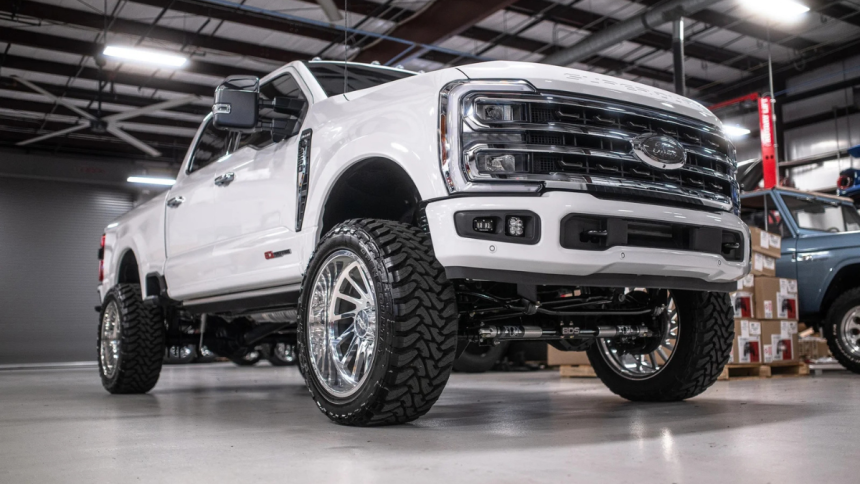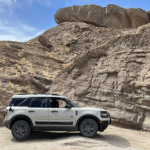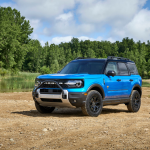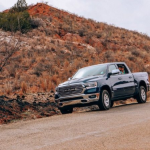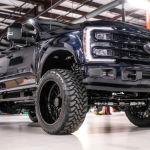When it comes to owning a truck, many drivers are drawn to the appeal of customization. Whether it’s for aesthetic purposes or functionality, custom trucks, such aslifted ford trucks, have become increasingly popular among enthusiasts. Lift kits, oversized tires, and specialized suspension systems can give these vehicles a commanding presence on the road and provide unique off-roading capabilities. However, with the growing interest in custom trucks, a common question arises: Are custom trucks safe for daily commuting? This question is particularly important for individuals who may be considering upgrading their vehicle or using a customized truck as their primary mode of transportation. In this article, we’ll explore the various factors that influence the safety of custom trucks, as well as the pros and cons of using them for daily commutes.
What Makes a Custom Truck?
Custom trucks are vehicles that have been modified to suit the personal preferences or specific needs of their owners. These modifications can vary widely, from simple cosmetic changes to more significant alterations designed to enhance the truck’s performance, handling, or off-road ability. Popular customizations for trucks include modifications to the suspension, tires, wheels, exhaust system, engine, and body.
These vehicles feature a raised suspension, which provides additional ground clearance, allowing the truck to navigate more rugged terrain with ease. While this makes lifted trucks ideal for off-roading, the impact of such customizations on daily driving and safety is something that many potential owners need to consider.
How Customization Affects Safety
Suspension and Handling
One of the most significant modifications made to custom trucks is the suspension system. Lifting a truck generally means raising its center of gravity, which can affect its handling and stability. While a lifted truck may provide a smoother ride over rough terrain, the same benefits don’t always translate to city streets or highways.
A higher center of gravity can make a truck more prone to tipping or rolling over, especially during sharp turns or sudden maneuvers. This is a particular concern for daily commuters who may need to navigate tight corners or make quick lane changes. Moreover, lifting the truck can alter its steering geometry, leading to changes in how the vehicle handles at high speeds.
To mitigate these risks, truck owners can consider upgrading other components, such as the shock absorbers, sway bars, and stabilizers, to improve the truck’s handling and stability. However, even with these adjustments, it is essential to recognize that lifted trucks generally do not offer the same level of handling as stock vehicles.
Tire Size and Performance
Another common customization for trucks is the use of oversized tires. While larger tires can improve off-road performance and provide a more aggressive look, they can have an impact on daily driving performance and safety.
Larger tires can affect the truck’s braking ability. Because of the increased size and weight of the tires, it may take longer for the truck to come to a full stop, especially during emergency braking situations. Additionally, the tires may have a larger footprint, which can lead to increased tire wear and potentially affect handling, particularly in wet or slippery conditions.
Oversized tires also put more strain on the truck’s drivetrain, leading to higher wear and tear on essential components like the transmission, brakes, and suspension. These factors can contribute to higher maintenance costs and potentially affect the truck’s safety over time.
Visibility and Blind Spots
Lifted trucks have a higher driving position, which offers improved visibility in some scenarios. For example, it may be easier for drivers of lifted trucks to see over smaller vehicles, which can help in heavy traffic or when merging onto highways. However, the elevated position can also create new blind spots, especially on the sides and rear of the truck.
Larger trucks can obstruct the view of other drivers, particularly in tight parking spaces or busy urban environments. Additionally, a truck with a raised body may have difficulty seeing pedestrians, cyclists, or smaller vehicles, making it essential for drivers to be extra cautious in urban areas.
To address these concerns, owners of lifted trucks should install additional mirrors, backup cameras, and parking sensors to improve visibility and minimize blind spots. However, these safety features can add to the overall cost of the truck, and they may not fully eliminate the risks associated with driving an elevated vehicle.
Comfort and Ride Quality
Ride Stability
A custom truck’s ride quality depends significantly on its suspension and other modifications. While lifted trucks can provide a more comfortable ride off-road, they may not offer the same level of comfort on paved roads, especially for daily commuting. The increased height and altered suspension can lead to a rougher ride, with the truck potentially swaying more than a stock vehicle.
For those who are used to a smooth, stable ride, this might take some getting used to. Additionally, the modifications made to the truck’s suspension might also cause additional strain on the truck’s components, leading to a rougher ride as parts wear out over time.
For daily commuters, especially those who drive long distances, comfort is an important consideration. It’s crucial to assess how the truck feels when driving on highways and through city streets. Customization can improve off-road performance but might decrease on-road comfort for regular commuters.
Noise Levels
Another factor to consider is the potential for increased noise levels in a custom truck. Some modifications, like the addition of larger tires or aftermarket exhaust systems, can increase road noise and engine noise inside the cab. For daily commutes, especially during long drives or in stop-and-go traffic, this additional noise can be distracting and reduce the overall comfort of the ride.
If minimizing noise is important to you, it may be necessary to choose modifications carefully or invest in soundproofing materials to maintain a quiet cabin environment.
Legal Considerations and Compliance
Local Regulations and Inspections
Before modifying a truck, it’s important to check local regulations to ensure the modifications comply with state and municipal laws. Some modifications, such as lifting the truck or changing tire sizes, may not be legal in certain areas without additional permits. In some regions, trucks that are excessively lifted or that feature oversized tires may fail to pass safety inspections, which could result in fines or the inability to drive the vehicle on public roads.
To avoid any legal complications, truck owners should research their area’s regulations regarding customizations and ensure that all modifications meet safety standards. This is especially important for anyone considering using their custom truck for daily commuting.
Insurance Implications
Customizing a truck can also have implications for insurance coverage. Many insurance companies may charge higher premiums for vehicles that have been modified, as these vehicles may be considered higher risk due to their altered performance and safety characteristics. It’s important to consult with your insurance provider to determine how modifications might affect your policy and what additional coverage may be needed.
Some modifications may also void warranties or limit the coverage available in case of an accident. It’s essential to carefully assess the financial and legal implications of customization before committing to changes that could affect your insurance or legal status on the road.
Conclusion
Custom trucks offer a unique driving experience with enhanced off-road capability and a striking visual appeal. However, when it comes to using a custom truck for daily commuting, there are several factors to consider in terms of safety, comfort, and legal compliance.
While custom trucks can offer improved visibility and off-road prowess, their higher center of gravity, larger tires, and altered suspension systems can negatively impact handling, stability, and braking performance, making them less suitable for urban environments and daily use. Additionally, modifications such as oversized tires or altered exhaust systems can increase noise levels and reduce comfort during long drives.
If you’re considering a custom truck for daily commuting, it’s crucial to weigh the trade-offs between off-road capabilities and on-road safety. By carefully choosing the right modifications and maintaining awareness of local laws, a custom truck can still be a viable option for everyday driving. However, for those prioritizing smooth handling, fuel efficiency, and comfort, a stock vehicle may be a better choice for a daily commute.
Lynn Martelli is an editor at Readability. She received her MFA in Creative Writing from Antioch University and has worked as an editor for over 10 years. Lynn has edited a wide variety of books, including fiction, non-fiction, memoirs, and more. In her free time, Lynn enjoys reading, writing, and spending time with her family and friends.


